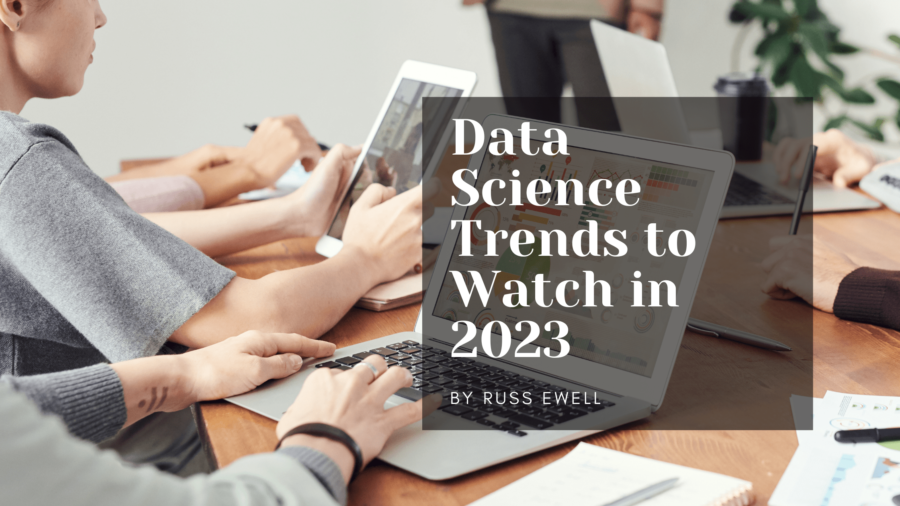The ability to collect and analyze data is becoming more important in today’s competitive environment. Companies can now gain a competitive advantage by analyzing and extracting insights from various sources.
The rise of digital transformation is forcing companies to adopt a data-driven business model. This allows them to make informed decisions and react to changes in the world around them. It helps us to anticipate and react to events that affect the established order of things.
Despite the evolution of data and analytics, the world of data and analytics is constantly changing. New technologies are being introduced that allow companies to collect and analyze more data. These innovations are expected to significantly impact how we use data and analytics in 2023.
More People Using Data
One of the most important trends that will affect the way we use data and analytics in 2023 is the increasing number of people who are empowered to put it to work. This will allow them to perform their jobs more effectively. The rise of augmented working allows people to access and use various tools and devices designed to help them do their jobs more efficiently.
In the next few years, businesses will realize how important it is to collect and analyze data to improve customer relationships and develop new products and services. However, until the power of data-driven insights is widely available to everyone in the organization, it will not be possible to fully implement this strategy.
In practice, there are examples of how data democracy can be used to improve the efficiency of various organizations. For instance, lawyers can use natural language processing tools to quickly sort documents and find relevant articles for their clients. Retail sales assistants can use terminals to discover customers’ past purchases and recommend products. According to a study conducted by McKinsey, businesses that make data accessible to all their employees are more likely to see a positive impact on their revenue.
The Cloud
The cloud is a platform that enables organizations to collect and analyze data. Businesses can easily access the sources they need to improve their operations through its various services, such as subscription-based platforms and data warehouses. This eliminates the need to build their own storage systems and collect data.
As a service, DaaS platforms allow organizations to collect and analyze data. They can then use this data to create more effective and valuable insights. Usually, this type of approach is used to supplement a company’s existing data.
The ability to access and analyze data through the cloud is a key component of the democratization of data. It eliminates the need for companies to spend a lot of money on data science and technical expertise.
AI and ML
Artificial intelligence is expected to greatly impact how we work, live, and do business in the future. Its ability to make more accurate predictions and reduce the time people spend on mundane tasks will allow them to focus on more productive activities. This technological change will also empower employees to adopt data-driven insights.
Machine learning is the core technology that enables businesses to analyze and improve their data faster than they would manually. This type of artificial intelligence is built on software algorithms designed to improve performance.
ML and AI technologies include natural language processing, computer vision, and generative AI, which can create text, images, and videos from scratch. These technologies are similar to what we do with our eyes.
Real-Time Data Collection
When analyzing and searching for insights, it’s important to remember that the data collected in real-time is always relevant. This allows businesses to make informed decisions and improve their operations.
Since working with real-time data requires a lot of technical expertise and expensive equipment, it can be challenging to implement. But with the help of AI and ML, we can analyze and act on data as it happens. For instance, analyzing the data from a website’s clickstream might allow us to identify which promotions and offers are most effective.
Due to the increasing number of organizations looking to collect and analyze data, the need for updated and up-to-date information will become more prevalent in 2023. This is why implementing real-time analytics and data will become the most important tool for businesses.
Regulation
In addition to implementing regulations, data governance will also become a major issue in 2023 as governments around the world introduce laws designed to protect the privacy and security of individuals’ personal information. Following the European Union’s General Data Protection Regulation (GDPR), other countries such as China and Canada are expected to follow suit. According to Gartner, by 2023, over 65% of the world’s population will be covered by similar regulations.
In addition to implementing regulations, data governance will also become a major issue in 2023 as governments around the world introduce laws designed to protect the privacy and security of individuals’ personal information. This means that businesses will have to implement effective measures to ensure that their procedures are properly understood and documented.
Although it might seem like an extra step, the goal is to make sure that the organizations that collect and analyze data are following proper procedures and are able to protect the privacy and security of the information they collect. This will allow them to provide their customers with better services and products.

